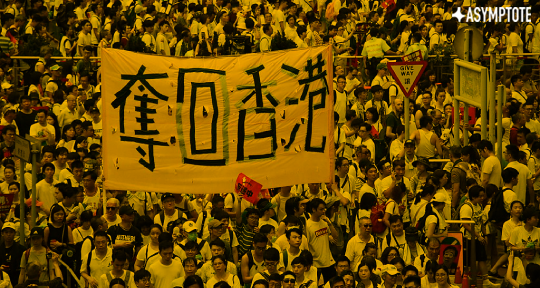This week our editors bring you the latest literary news from Poland, Hong Kong, and Serbia. In Poland, high-profile authors including Olga Tokarczuk have been vocally supporting women’s rights and an exciting, newly discovered Bruno Schulz story has been published; in Hong Kong, authors have spoken out against claims of a dearth of writing in Hong Kong to attest to its thriving literary scene, just as the Hong Kong International Literary Festival kicks off; and in Serbia, a new biography of Ivo Andrić, the only Yugoslav Nobel Prize winner for literature, has sparked debate. Read on to find out more!
Julia Sherwood, Editor-at-Large, reporting from Poland
As if having to cope with two waves of the coronavirus pandemic was not enough, Poland has been swept by two major waves of social unrest. The summer months were dominated by protests against the rising tide of homophobia, which prompted an open letter from the world’s leading writers, directors, and actors, including Margaret Atwood, Pedro Almodóvar, and Olga Tokarczuk. And since October 22 people have been out on the streets in their thousands protesting against the decision to further tighten the country’s abortion law, already one of the most restrictive in the world. Members of the LGBT+ community and people from all walks of life, including miners and farmers on tractors, joined women in marches up and down the country. Olga Tokarczuk summed up the sentiment in a tweet:
“Let us not deceive ourselves—this system will cynically exploit every moment of crisis, war, and epidemic, to return women to the kitchen, the church, and the cradle. Women’s rights are not given once and for all. We have to safeguard them, like every other achievement broadening the range of civil rights and human dignity. As of today, all of us are women warriors.”
Many other renowned writers—women including Wioletta Grzegorzewska, Agnieszka Taborska, and Anna Janko, as well as men, such as Zygmunt Miłoszewski, Mariusz Szczygieł, Jacek Dehnel, Szczepan Twardoch, Ziemowit Szczerek, and Aleksander Kaczorowski, have expressed their support for the women’s strike and their right to voice their anger in very strong language. Marta Frej, whose in-your-face feminist posters and memes have been empowering women and LGBT+ people for years now (here is her cover for a recent issue of the weekly Polityka) was joined by a number of renowned illustrators (see a selection featured in Calvert Journal).
Moving on to more strictly literary news, the online journal Notes from Poland has come up with a minor sensation: a translation of “Undula,” a newly discovered story, almost certainly written by Bruno Schulz, more than a decade before the writer’s first known works appeared. The story “follows the masochistic sexual imaginings of a sick man confined to his bed in a room inhabited by whispering shadows and cockroaches” and was published in an obscure Polish oil industry newspaper in 1922 under the name Marceli Weron. The Ukrainian researcher Lesya Khomych, who found it in an archive in Lviv, immediately suspected that this was a pseudonym and that the story could only have been written by Bruno Schulz. The story has now been translated and is introduced by Stanley Bill of the University of Cambridge and editor-at-large at Notes from Poland. READ MORE…




